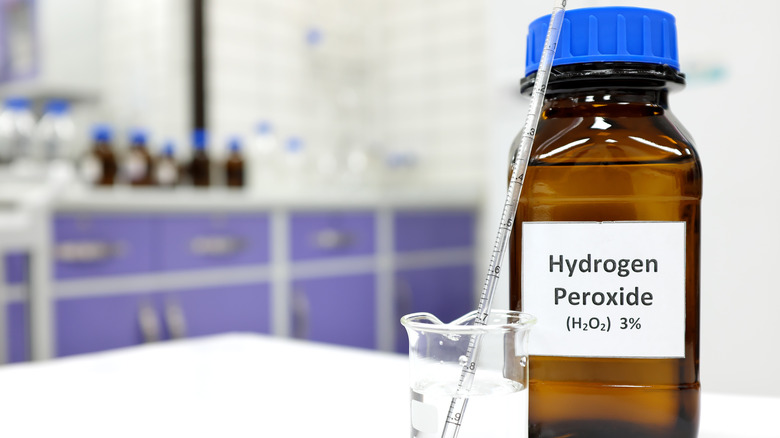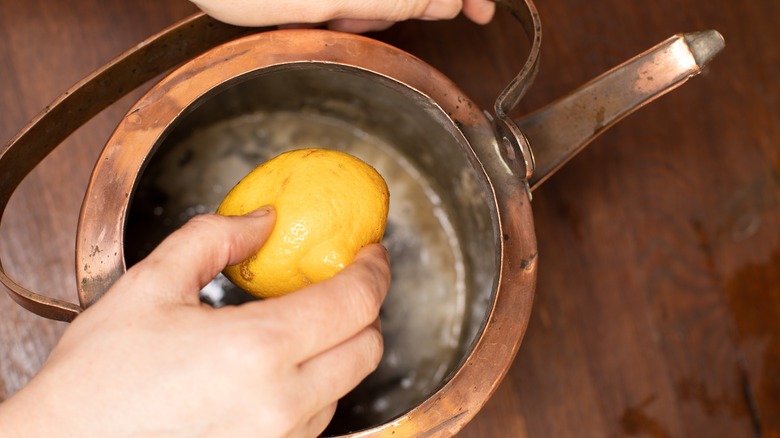Never Use Hydrogen Peroxide To Clean Copper Surfaces. Do This Instead
Known for its durability and resistance to heat, copper is often used in cookware, jewelry, electrical wiring, and much more. If you want to keep its natural reddish color intact, it's also important to know how to clean copper. While there are many surprising ways to use hydrogen peroxide around your home, cleaning copper surfaces isn't one of them. In fact, you should steer clear of this common medicine cabinet ingredient when cleaning copper altogether due to its potential to tarnish.
The problem is that hydrogen peroxide can damage the appearance of this metal due to its reaction with the copper. It's thought that hydrogen peroxide and copper produce copper oxides, which then form permanent red to brown colored stains. Such results in one reported experiment on copper cookware were achieved with just 3% hydrogen peroxide, the same low strength you can buy at a drugstore. The takeaway here is that even small amounts of hydrogen peroxide aren't safe for cleaning copper, but there are alternative methods you can try instead.
How to clean copper surfaces without using hydrogen peroxide
Copper surfaces are unfortunately prone to tarnishing from prolonged direct exposure to certain chemicals and acidic ingredients, including baking soda, lemon juice, and vinegar. (However, you may be able to use these ingredients in small amounts for short durations to help remove stains.) If you want to preserve the appearance of copper jewelry, cookware, utensils, or other objects, you may consider gentle cleansing agents instead. Before you purchase commercial copper cleaning products though, know that the most effective way to clean copper is to use mild soap, water, and a soft microfiber cloth.
However, if there are already signs of tarnish, ranging in color from green, red, or amber, you may need to use something stronger. Also, while hydrogen peroxide may remove numerous types of stains, this doesn't work for copper. Architectural Digest recommends four different methods: ketchup, a paste of white vinegar and salt, a lemon "sponge" with salt sprinkled on top of a cut lemon, or a baking soda and lemon juice paste. The key here is to apply the chosen cleanser in small amounts and gently scrub the tarnish in circular motions. Rinse thoroughly under water and dry with a soft cloth.

